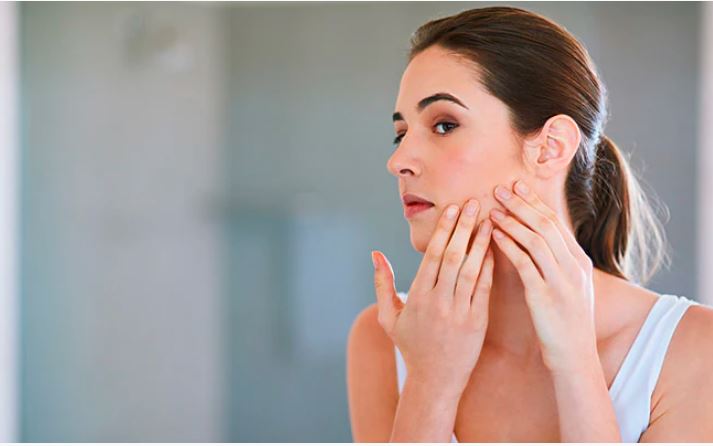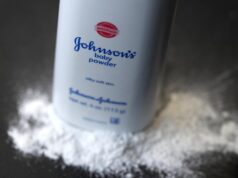Polycystic ovary syndrome, or PCOS, is a hormonal imbalance suffered by most women globally. It is a lifestyle disorder which results in weight gain, skincare issues, excess body hair and more. It is characterised by excess production of male hormones in the body, which eventually becomes worrisome and the symptoms can differ from person to person, depending on their body. Hormonal imbalance, improper nutrition and lifestyle choices are also said to be its root causes. The basic symptoms include irregular periods, blemishes, acne and other skin problems that can be quite frustrating to deal with. While most of us try to figure out how to balance the condition, we also need to be aware about how to know if one has PCOS?
We decode the complexities around this as we speak to renowned dermatologists about PCOS and how to deal with them.
PCOS affects the body in many ways, from fluctuation in weight to hair thinning and majorly affecting our skin as well, which can be quite stressful to deal with. The transitioning of skin during PCOS could also be early signs to detect it.
“One starts to develop acne along the jawline and on the chin. Cysts and nodules are more commonly seen. Moreover, acne tends to flare up before menstruation and one may suddenly develop coarse thick hair on the face, breasts and chest. One may also develop acanthosis nigricans, seen as thick velvety patches on the neck, underarms and groin,” explains celebrity dermatologist Dr Jaishree Sharad.
Start by recognising the signs of PCOS on your skin
Acne is a major effect of this disorder and the increased inflammation in the skin could lead to aggressive acne on the lower part of the face.
Dr Madhuri Agarwal, medical director and CEO of Yavana Aesthetics Clinic seconds the notion and adds, “Skin changes are usually the initial signs of PCOS and help with early detection of PCOS. Since there is hormonal imbalance and insulin resistance in PCOS, the skin starts showing signs of inflammation which can lead to acne commonly in lower part of face. These acnes are deeper seated ,take longer to resolve and often leave deep scars.”
The hormonal imbalance leads to acne and thinning of hair and the treatment for this is multifaceted. You might be prescribed to get it treated by switching your skincare routine entirely or even opting for oral medication.
“Your skin care will change if you have acne, you will need to start using a salicylic acid-based face wash or face wash with tea tree oil and moisturizers and sunscreens will have to be gel based or water based. You may use 2.5% benzoyl peroxide on the acne but if the acne persists you will have to consult with a dermatologist to take oral medication,” suggests Dr Sharad.
Switch to formulations that can treat your skin concern
“During these transitions, consult a dermatologist to get the correct diagnosis of PCOS .Acne will require oral medications hormonal in nature to streamline the internal changes. Lifestyle management and weight loss is crucial to improve skin health,” says Dr Madhuri.
If you are suffering from PCOS, the effects on your skin could be an indication and you can simply start off by setting your skincare routine right, followed by consulting your dermatologist for a professional treatment.
“The AM routine will consist of a salicylic acid-based cleanser followed by an alcohol-free toner, water based or gel-based moisturizer and finally a water based or gel-based sunscreen,” says Dr Sharad.
Switch your skincare routine as per your skin type after consulting a dermatologist
For the night time, it is best to avoid oil-based products and instead go for the ones which are ideal for the treatment.
“At bedtime the makeup should be removed with cleansing lotion and not oil, avoid using oil. Follow it up with the cleanser and use the anti-acne cream and the moisturizer over it. If you do not have active acne and do not need the anti-acne cream, you can even use a salicylic acid-based serum on alternate nights before you apply the moisturizer.”
During a disorder, our skin might be going through tremendous changes and we switch our skincare routine, it is also better to avoid a few experts suggested points to avoid during this time.
“Skincare in PCOS should be steady, consistent and not be very variable with multiple products. Avoid too many types of actives or acids in pursuit of a clear, blemish free skin. Do not pluck hair to treat the hirsutism, laser hair reduction is a better bet for it. ” suggests Dr Madhuri
Furthermore, Dr Sharad tells us to be one step ahead by avoiding the following points.
1. Avoid any kind of facials.
2. Avoid using too many products on the face.
3. Avoid layering the face.
4. Do not apply anything without a dermatologist’s recommendation.
5. Avoid oil based or cream-based products. use water based or gel-based products. avoid applying oils on the face.










